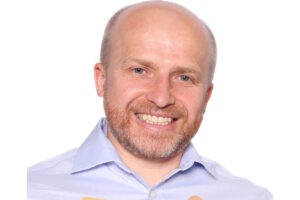Map Unavailable
Date/Time
Date(s) - 04/18/2025
9:00 am - 9:50 am
Category(ies)

Alex Shcheglovitov, PhD
Associate Professor of Neurobiology, Department of Neurobiology and Anatomy, The University of Utah
Date: Friday, April 18, 2025
Time: 9:00 – 9:50 a.m., SCOB 228
Faculty Host: Madeline Andrews
Abstract: Human telencephalic brain organoids offer a powerful platform for studying brain development and disease. We recently developed a new method for generating brain organoids from stem cell-derived, single neural rosettes (Wang et al., Nature Communications, 2022). Mimicking the in vivo formation of the neural tube, this approach yields organoids with increased consistency and reproducibility in cellular composition and organization compared to traditional methods. This presentation will describe our single neural rosette-based protocol for generating organoids and provide information about their cellular composition, organization, and functional properties. Furthermore, it will demonstrate the utility of single neural rosette-derived telencephalic organoids as a model system for studying neurodevelopmental disorders.
Biosketch: Dr. Shcheglovitov is an Associate Professor of Neurobiology at the University of Utah and a Faculty Director for the Utah Cellular Translational Research Core at Utah CTSI. He earned a Bachelor’s and Master’s degree in applied physics from the National Technical University of Ukraine, followed by a PhD in biophysics from the Bogomoletz Institute of Physiology, Kyiv Ukraine. He completed Postdoctoral trainings at the University of Virginia with Dr. Ed Perez-Reyes and Stanford University with Dr. Ricardo Dolmetsch. His lab studies human brain development and neurodevelopmental disorders using neurons and brain organoids derived from induced pluripotent stem cells. Dr. Shcheglovitov is a recipient of several prestigious awards, including the Innovation Research Award from the International Society for Autism Research, NARSAD Young Investigator Award, and Alex’s Lemonade Stand Innovation Award.
